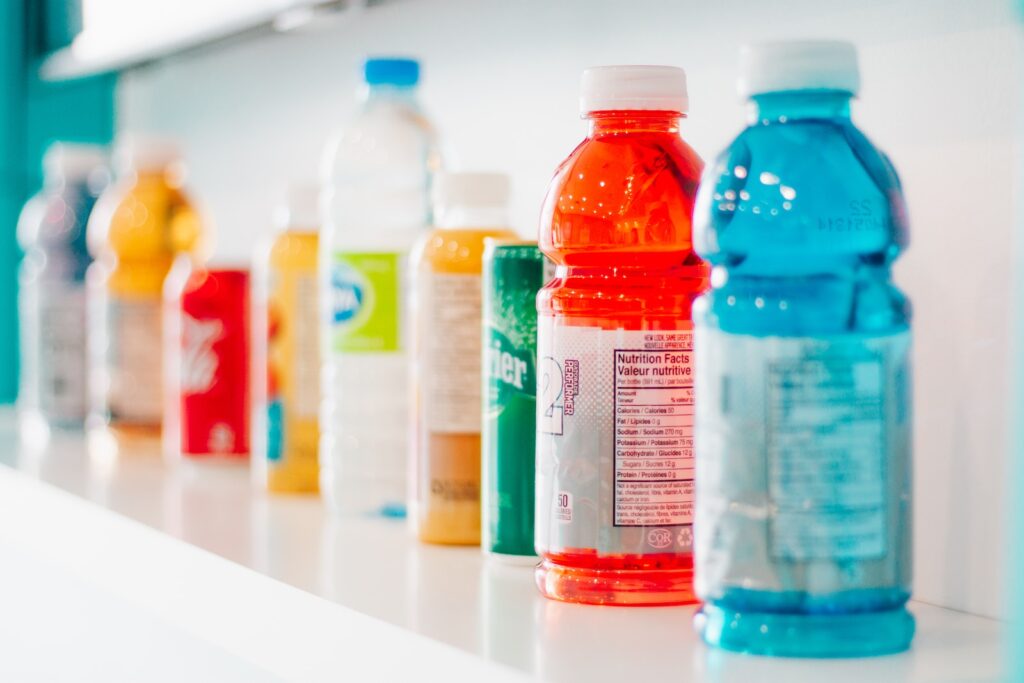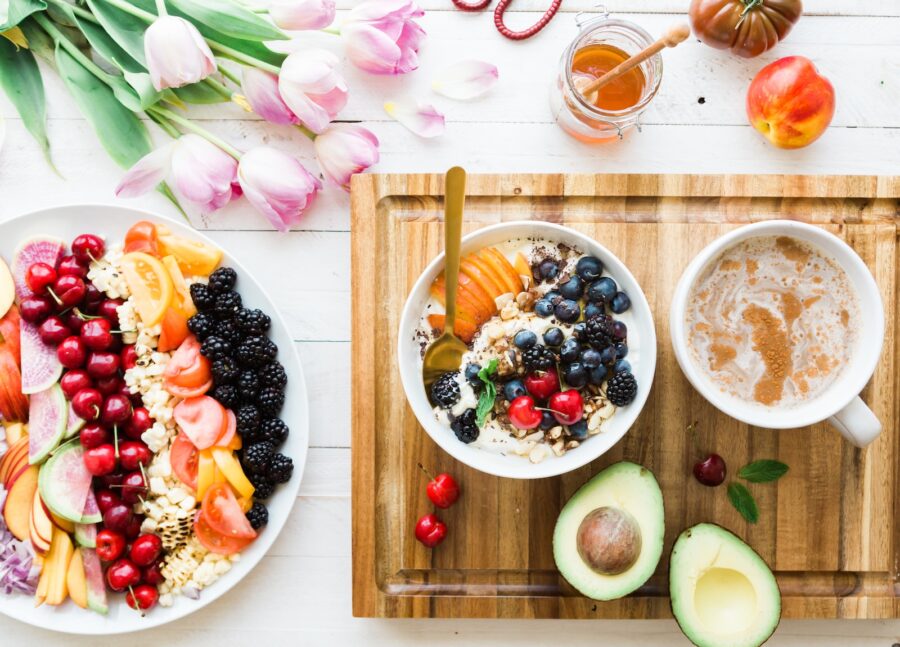Good Nutrition
The Importance of Electrolytes in Good Nutrition
Are you ready to dive into the fascinating world of electrolytes?
Imagine your body as a well-oiled machine, constantly in need of fuel and maintenance. Electrolytes are like the tiny cogs that keep everything running smoothly, ensuring your health and vitality.

From maintaining proper hydration to optimizing exercise performance, these essential minerals play a crucial role in good nutrition.
So join us on this journey as we explore the importance of electrolytes and discover how they can help you belong to a vibrant community of healthy individuals.
The Role of Electrolytes in the Body
You need to understand the role of electrolytes in your body for optimal health and functioning. Electrolytes play a vital role in maintaining cellular function and overall health. These tiny charged particles, such as sodium, potassium, calcium, and magnesium, are responsible for conducting electrical impulses throughout your body.
Electrolytes are essential for various bodily functions. They help regulate fluid balance by controlling the movement of water between cells. This balance is crucial for proper hydration and preventing dehydration or overhydration. Electrolytes also support nerve transmission, allowing signals to travel efficiently between your brain and muscles. This enables smooth muscle contractions necessary for movement.
Maintaining adequate electrolyte balance is crucial for overall health. Imbalances can lead to numerous issues like muscle cramps, fatigue, irregular heartbeat, and even seizures. By consuming a well-balanced diet that includes foods rich in electrolytes or replenishing them through supplements or sports drinks during intense physical activity or hot weather conditions, you can ensure proper levels.
Remember that your body relies on electrolytes to function optimally at the cellular level. By understanding their importance and striving for balance, you can support your overall health and well-being while feeling a sense of belonging within yourself and among others who prioritize their nutritional needs too.
Common Electrolytes and Their Functions
Did you know that sodium plays a crucial role in regulating fluid balance in your body? It helps maintain the right amount of water inside and outside your cells, ensuring proper hydration.
And when it comes to potassium, it’s not just about bananas – this electrolyte is essential for supporting proper muscle function. It helps your muscles contract and relax, allowing you to move and exercise effectively.
Additionally, calcium is key for nerve impulse transmission, enabling signals to travel along your nerves smoothly.
Sodium: Fluid Balance Regulator
Avoiding excessive sodium intake is crucial for maintaining proper fluid balance in your body. Sodium plays a vital role as both a blood pressure controller and a kidney function regulator. It helps to regulate the amount of water in your body, ensuring that it stays within healthy levels.
When you consume too much sodium, it can lead to an increase in blood pressure, putting strain on your heart and increasing the risk of cardiovascular diseases. Additionally, sodium helps your kidneys function properly by regulating the amount of water that is excreted through urine.
Potassium: Muscle Function Supporter
Potassium is an essential mineral that plays a crucial role in supporting proper muscle function. Your muscles rely on potassium for their health and strength. Without enough potassium, you may experience muscle weakness, cramps, and even irregular heartbeats. So it’s important to ensure you’re getting enough of this vital mineral in your diet.
Muscle health is not just about looking good; it’s about feeling strong and confident in your body. Potassium deficiency can hinder your progress towards achieving optimal muscle function. To avoid this, make sure to include potassium-rich foods in your meals, such as bananas, avocados, spinach, and sweet potatoes.
Calcium: Nerve Impulse Transmission
To maintain healthy nerve function, it’s crucial for you to ensure an adequate intake of calcium-rich foods in your diet. Calcium plays a vital role in supporting nerve health and maintaining strong bones. Your nerves rely on calcium for proper impulse transmission, allowing them to send signals throughout your body effectively.
By including foods like milk, cheese, yogurt, and leafy greens in your meals, you can provide your body with the necessary calcium it needs. Not only will this contribute to healthy nerve function, but it will also improve bone strength.
Electrolyte Imbalances and Their Impact on Health
Electrolyte imbalances can have a significant impact on your overall health and well-being. Whether you’re an athlete pushing your body to its limits or an elderly individual trying to maintain your vitality, keeping your electrolytes in balance is crucial.
For athletes, electrolyte imbalances can occur due to excessive sweating during intense workouts. When you sweat, you lose important minerals like sodium, potassium, and magnesium that are essential for optimal muscle function and hydration. Without these electrolytes, you may experience muscle cramps, fatigue, and decreased performance.
On the other hand, elderly individuals may be at risk of developing electrolyte imbalances due to changes in kidney function and medication interactions. These imbalances can lead to various health issues such as weakness, confusion, irregular heart rhythms, and even falls.
To prevent electrolyte imbalances, it’s important for athletes to replenish their lost electrolytes through sports drinks or foods high in these minerals. Similarly, elderly individuals should ensure they have a balanced diet rich in fruits and vegetables that provide necessary electrolytes.
Sources of Electrolytes in the Diet
Now that you understand how electrolyte imbalances can affect your health, let’s talk about the importance of incorporating electrolytes into your diet. If you’re someone who enjoys sports or physical activities, it’s even more crucial to ensure proper electrolyte intake.
Electrolytes play a vital role in maintaining fluid balance in your body, regulating muscle contractions, and supporting nerve function.
To replenish electrolytes lost through sweat during exercise, it’s essential to consume foods rich in these minerals. Some great options include bananas, coconut water, oranges, spinach, yogurt, and avocados. These foods are not only delicious but also packed with the electrolytes your body needs for optimal performance.
Additionally, sports drinks can be beneficial when engaging in intense physical activity as they provide a quick source of electrolytes. However, be mindful of their sugar content and opt for healthier alternatives whenever possible.
Remember that staying hydrated is equally important when it comes to maintaining proper electrolyte levels. Drink plenty of water throughout the day to support overall hydration and help transport these essential minerals throughout your body.
The Importance of Hydration for Electrolyte Balance
Staying properly hydrated is key to maintaining a balance of electrolytes in your body. When it comes to good nutrition, electrolytes play a crucial role in keeping your body functioning at its best. Electrolytes are minerals that carry an electric charge and help regulate bodily functions like muscle contractions and nerve impulses.
To ensure you have enough electrolytes, incorporating foods rich in these minerals into your diet is important. Foods such as bananas, spinach, avocados, and coconut water are all excellent sources of electrolytes.
However, sometimes it can be challenging to get enough electrolytes through food alone. This is where electrolyte supplementation can come in handy. By taking supplements or sports drinks that contain electrolytes, you can replenish any deficiencies and maintain optimal hydration levels during intense workouts or hot weather conditions.
The benefits of electrolyte supplementation go beyond just hydration. These supplements can also improve athletic performance by preventing muscle cramps and enhancing overall endurance. They help restore the balance of sodium, potassium, magnesium, and calcium in your body after sweating excessively.
Electrolytes and Exercise: Optimizing Performance and Recovery
To optimize your performance and prevent muscle cramps during exercise, it is crucial to focus on two key points: preventing muscle cramps and hydration for better performance.
By ensuring you have adequate fluid intake before, during, and after your workout, you can maintain proper hydration levels and support optimal muscle function.
Additionally, incorporating electrolyte-rich foods or sports drinks into your routine can help replenish the minerals lost through sweat and further enhance your athletic performance.
Preventing Muscle Cramps
Make sure you’re getting enough electrolytes to prevent muscle cramps. Muscle cramps can be a real pain, literally! But don’t worry, there are simple ways to keep them at bay.
One of the most effective methods is through electrolyte replenishment. Electrolytes are minerals that help regulate the balance of fluids in your body and play a crucial role in muscle function. When you exercise or engage in any physical activity, you lose electrolytes through sweat.
That’s why it’s important to replenish them by drinking fluids that contain electrolytes like sodium, potassium, and magnesium. Sports drinks or coconut water are great options for this purpose.
Hydration for Better Performance
Now that you understand how to prevent muscle cramps, let’s focus on another important aspect of good nutrition: hydration.
Proper hydration is key to improving your endurance and overall performance. When you exercise, especially in hot weather or for extended periods, your body loses electrolytes through sweat.
Electrolytes are essential minerals that help regulate nerve and muscle function, maintain fluid balance, and support cell function. To replenish these electrolytes and stay hydrated, you can consider using electrolyte supplements.
These supplements provide a convenient way to restore the balance of sodium, potassium, magnesium, and other crucial minerals in your body.
Frequently Asked Questions
How Do Electrolytes Affect Our Body’s Ph Balance?
Electrolytes play a crucial role in maintaining your body’s pH balance. Imbalances can negatively impact your overall health. To optimize athletic performance, electrolyte supplements are essential as they help replenish what you lose through sweat.
Can Electrolyte Imbalances Lead to Muscle Cramps?
Yes, electrolyte imbalances can lead to muscle cramps. When you have an electrolyte deficiency, your muscles can’t function properly and are more prone to cramping. Stay hydrated and replenish electrolytes to prevent this.
Are There Any Specific Foods That Are Rich in Electrolytes?
Specific foods rich in electrolytes can greatly benefit your hydration and electrolyte balance. Incorporating these foods into your diet can enhance exercise performance and overall nutrition.
What Are the Symptoms of an Electrolyte Imbalance?
Feeling tired, muscle cramps, and irregular heartbeat are all signs of an electrolyte imbalance. It can be caused by dehydration or certain medications. To prevent it, stay hydrated and eat foods rich in electrolytes. Treatment may involve supplements or IV fluids.
How Does Dehydration Affect Electrolyte Levels in the Body?
When you’re dehydrated, your body loses essential fluids and electrolytes. This can lead to an electrolyte deficiency, causing symptoms like muscle cramps and fatigue. It’s important to stay hydrated to maintain proper electrolyte levels in your body.
Conclusion
Congratulations! You’ve reached the end of this journey through the importance of electrolytes in good nutrition.
Remember, keeping your electrolyte levels balanced is crucial for overall health and wellbeing.
So, make sure you include foods rich in electrolytes like bananas, spinach, and avocados in your diet to stay on top of your game.
And don’t forget to stay hydrated – it’s like giving your body a refreshing boost!
With proper electrolyte balance, you’ll be unstoppable in achieving your fitness goals.
Keep up the good work and drink that H2O!























































